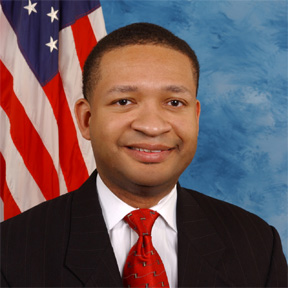The shortest distance in modern politics is the one between a Republican willing to denounce his party for extremism and the set of a cable or Sunday morning talk show. The gift of exposure is waiting for the cheap ticket of describing today’s Republicans as an intolerant set of know-nothings whom one no longer recognizes.
There are a variety of reasons why the current incarnation of the Republican Party is unfamiliar if you are a Republican moderate of a certain age. From the irrelevance of the establishment wing that once financed and vetted most of the party’s candidates, from president down to congressmen; to the spinning off of non elected influencers, from Grover Norquist to the Tea Party, who limit the maneuvering room of the elected leadership; to the devolution of its media center from the glass panels of the Wall Street Journal to a cable network owned by an Australian plutocrat.
To be sure, each of these trends has driven the party to be a straightforwardly conservative ideological vehicle, and each has made the party unwieldy and harder to direct. Is that tantamount to a descent into the darkness? It’s worth noting that for all of its turbulence, the right wing of the party has enrolled what are likely tens of thousands of non-involved homeowners, teachers, retirees, and even the unemployed into the ranks of activists—still a good thing in a citizen driven democracy. Yes, the difficulty of assembling a Republican coalition for congressional deal-making makes consensus harder to achieve than ever. But then an accounting of the “good old days” recalls that consensus generates its own flawed outcomes, like the unraveling of accountability around the capital markets in the latter Clinton years and the explosion of legally sanctioned influence peddling on both partisan sides of K Street.
And if there is a cottage industry in obstructionism in the modern GOP, the market impulse driving it is distrust at the handiwork of the credentialed, Metropolitan Club card-carrying elites who used to own so much authority. It turns out that a decade of tepid job growth, minimal gains to show from government spending, and stagnating wages have alienated conservatives as much as they have Obama voting liberals.
The easiest path for most of the establishment media has been to draw the focus to the trouble-making side, if you will, of the conservative populism that has been underway for about four years now. But the Republican Party’s near term health may depend on whether its re-emerging center shows a deeper empathy for why that populism flourishes, and a willingness to view the disillusioned Right as a potential ally rather than a mortal enemy.
One modest proposal for Republican moderates: spend more time traveling the side roads to the buffet chains and libraries where, for example, local Tea Parties organize. The virtue of the trip, for a moderate, would be a discovery that a Tea Party conclave is as likely to include a civil engineer, or retired university professor as is the regular party committee, and far more likely to contain volunteers than are the luncheons of platinum level donors. Among other discoveries, to draw on personal experience, the presence of people like one Tea Party activist in Virginia, whose other major volunteer engagement is a network in Richmond for tutoring homeless young adults; or a Tea Party activist in Fairfax County who risked a lucrative career in business development over exposing a client’s wage scale that systematically discriminated against blacks.
To be sure, a moderate would be jarred by the occasional “why” questions as to the specific constitutional foundations of every conceivable public policy. But if memory counts for anything, the most electric response I have ever heard in a Tea Party setting for a specific policy idea happened to be to a five minute riff on state driven tenure reform at the K-12 level, a cause that moderates regularly cite as the kind of initiative that smart Republicans ought to be pursuing.
And the hostility to the very ideal of compromise in such grassroots settings? I recognize it because it is not different in decibel or tone from the volume at a lot of meetings of liberal activists circa 2005-2006, when the steady theme in these sessions was don’t yield on Social Security, or Iraq, or torture, or warrantless wiretapping. To a degree the center should acknowledge in the interests of integrity, this is the lot of contemporary politics, where left or right activism invariably means rejecting root and branch the goals and good intentions of the opposite side. At the same time, moderates should recognize that Barack Obama’s intense popularity on the left despite floating grand deficit bargains, and absorbing much of the substance of George Bush’s War on Terror, is continuing proof that the “unruly” base can ultimately be absorbed into a winning coalition.
And if today’s generation of Republican centrists are genuinely interested in rebuilding the Republican coalition, it will require the dexterity of motivating the party’s ideological core to embrace a reform agenda, rather than the far less plausible task of rallying the party around a vision that its populist base will vow to defeat. It will be tougher work than the strategy Michael Tomasky and some of the left’s sharpest pundits recommend to moderates—namely, waging a reverse coup backed by moderate millionaires and declaring internal war against true believers. But then again, liberal commentators aren’t exactly trying to elect more Republicans.










Leave a Reply